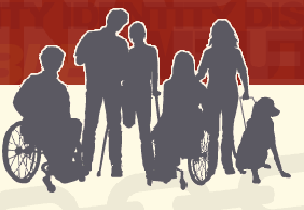Transabled: A neurological issue or a mental disorder?
 NZ Herald 11 April 2017
NZ Herald 11 April 2017
Family First Comment: Well, we all know the answer to that. But one day very soon, we will be called “Ablephobic” for thinking that. 🙂
“…there’s a growing number of people who are choosing to be disabled. These non-disabled people are calling themselves “transabled”. According to Professor Alexandre Baril (a feminist, gender and sexuality studies professor and fellow), transability is “the desire or the need for a person identified as able-bodied by other people to transform his or her body to obtain a physical impairment”…. Transability falls directly under the Body Integrity Identity Disorder (BIID) umbrella – psychological disorder that manifests in healthy people who have been known to physically harm themselves in order to be deemed disabled.”
Sheesh – this is doing my head in!
“Science is somewhat divided on the source of the issue. Some experts argue that this is a neurological issue, while others identify it as more of a mental disorder.”
Isn’t it supposed to be an “identity”??
Most disabled people have a tale to tell of how their disability came to be – whether they were born with it, endured an accident or survived a life-changing injury.
However, what you may not have expected is that there’s a growing number of people who are choosing to be disabled.
These non-disabled people are calling themselves “transabled”.
Likening their identity to that of transgendered people, the transable feel one or more limbs or functions of one’s body do not belong to one’s self.
According to Professor Alexandre Baril (a feminist, gender and sexuality studies professor and fellow), transability is “the desire or the need for a person identified as able-bodied by other people to transform his or her body to obtain a physical impairment”.
The impairment can take the form of everything from paralysis to amputation. Hence why it is also known as Amputee Identity Disorder. The majority of BIID sufferers are white middle-aged males, although this discrepancy may not be nearly as large as previously thought.
READ MORE: http://www.nzherald.co.nz/lifestyle/news/article.cfm?c_id=6&objectid=11835546






